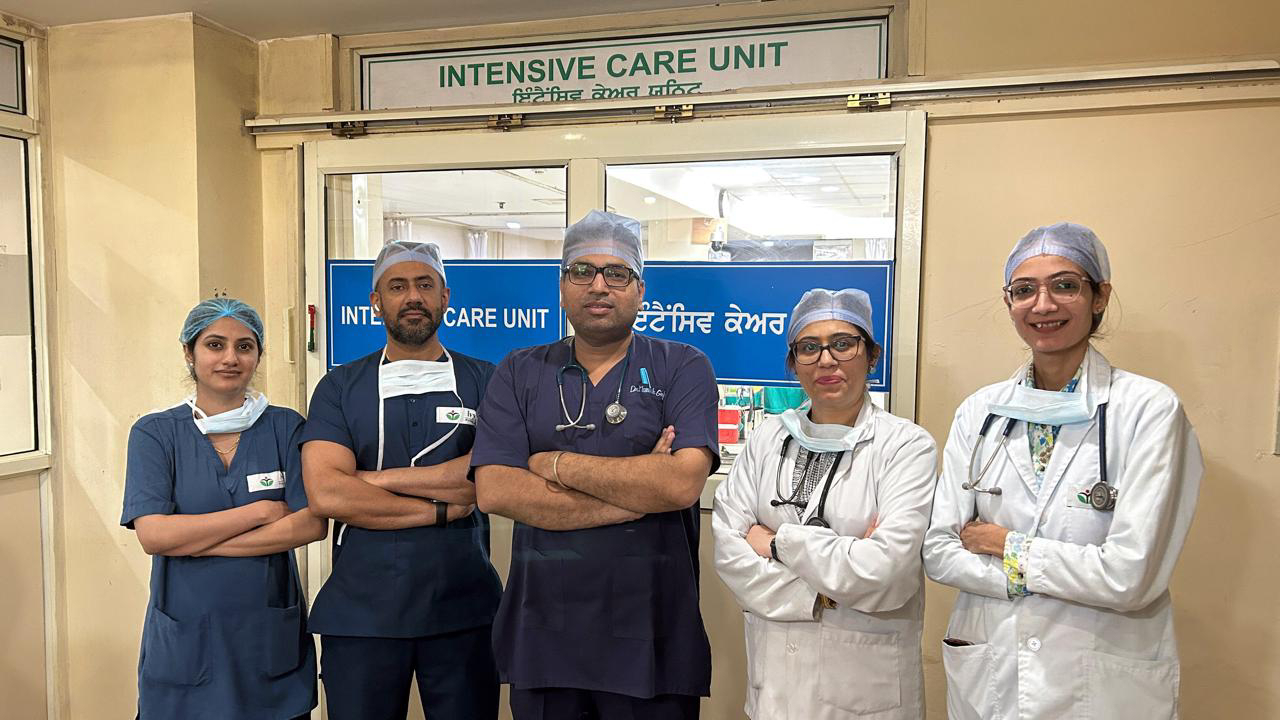Amritsar, July 5: In order to create awareness on critical illnesses and ICU care, Ivy Hospital Amritsar organized a patient’s awareness seminar today. It was addressed by Dr Manish Gupta head of critical care, Dr Gurpreet Singh Gill senior consultant anesthesia and Dr Sonia Saini senior consultant anesthesia and attended by over 100 patients and attendants. This seminar was organized to share information about various facts and myths regarding critical care services & ventilation.
Speaking on this occasion, Dr Manish Gupta said “Critical or intensive care is the diagnosis or management of life-threatening health conditions that often require life - support systems. The facilities in these units are considered to be the best and most technologically advanced, that a hospital can offer,”
He said,” The ICU is manned 24/7 by intensivist doctors, specialized nurses, respiratory therapists, physiotherapists, clinical pharmacists, nurse practitioners, dietitians, and physician assistants. Equipped with the best technology like ventilator, multipara monitors, ultrasound machine, dialysis machines, ECHO, high flow nasal cannulas ICU ensures the highest level of patient care.”
Dr. Manish Gupta also shared that India has 2.3 critical care beds for one lakh patients, which is significantly lower than western countries.
Dr. Manish Gupta further said that Ivy Hospital Amritsar is now offering advanced critical care services under one roof with back up of all super specialities.
He shared that our critical team has recently saved lives of 4 very sick patients who came to our hospital with snake bite, celphos poisoning & drug overdose.
Usually, the outcome of such cases is not very good and these kinds of cases have very less chances of survival. But with advanced treatment and supportive therapy provided by our critical care team, we could save the life of a 25 years old young patient who came down with celphos poisoning, and a 24 years old patient who came down with drug overdose and a snake bite patient.
Sharing his views Dr. Gupreet Singh Gill said, “Almost all big hospitals be it private or public have intensive care units (ICUs). If you look closely these 10-20 beds which are separate sections at any hospital are always full. For many, ICUs seems like a place that admits patients of poly-trauma (accidents) mostly, but given the rising incidents of new age infections & life style diseases, tropical infections like dengue, chikungunya, swine flu, pneumonia asthma, COPD, kidney failure, multiorgan failure , liver failure, stroke, CKD, respiratory distress coupled with rising burden of geriatric population, ICU are in demand more than ever. In India five million patients require ICU care but only 95,000 ICU beds are available.”
Outlining the need for more ICU beds, Dr. Sonia Saini said that changing demographics that yield a higher proportion of geriatric individuals in the overall population will further increase the burden on supply side infrastructure.
She also shared that critical care has been exponentially growing for the past few years in India with the overall advancement in global critical care research, specialized training available for professionals in critical care, availability of latest and state of the art infrastructure. However, despite these increments, the reach of critical services to the masses is way behind the desired level. There appears a strong need to increase the ICU beds to at least 10% of total beds in all hospitals; and even up to 15-20% in some leading public as well as private tertiary care centers.
Essential component of a standard critical care ICUs:
Ø Advanced ventilators
Ø Non-invasive ventilators
Ø High flow nasal cannula
Ø Advanced monitors
Ø ABG Analysis
Ø Bedside ICU dialysis
Ø Bedside Plasma Apheresis
Ø Round the clock consultant intensivist


















It is especially decent, though look into the tips during this home address. Understanding the Basics of Mattress Quilting Machines
ReplyDelete